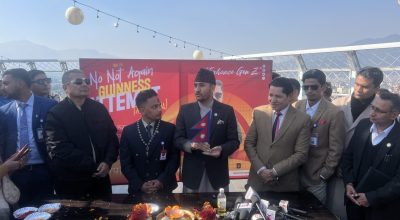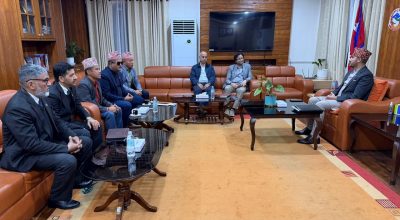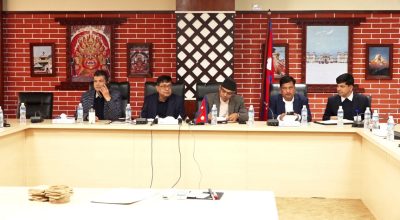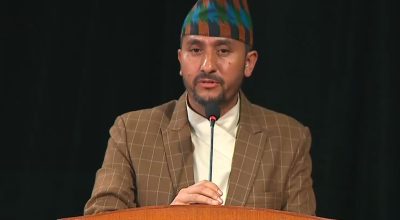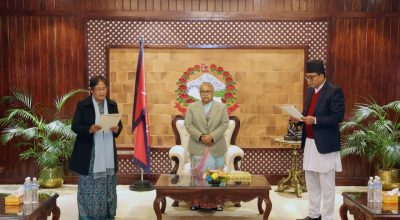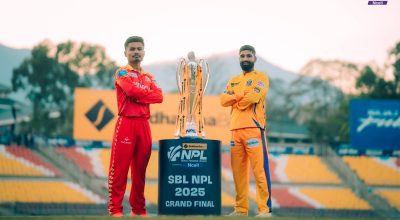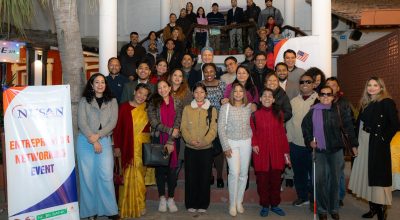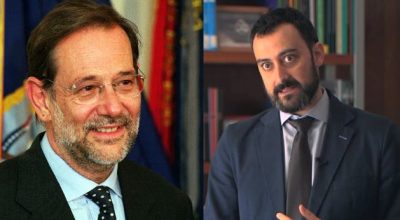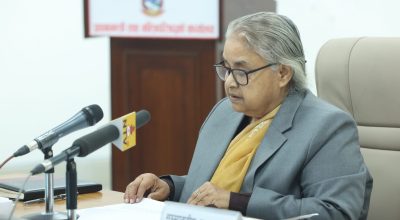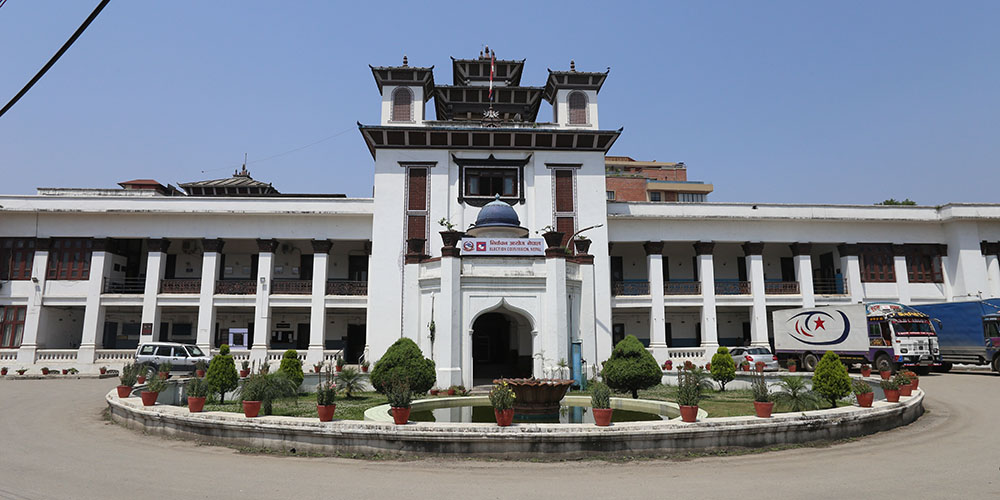
Kathmandu:, March 24: The country has recently marked the conclusion of all scheduled elections in a year with the conduction of vice presidential election on 17 March 2023 lately. Ramsahaya Prasad Yadav has been elected Vice President of the country through the latest poll.
The local poll held on 13 May 2022 was followed by simultaneous elections to the members of the House of Representatives and Province Assembly on 20 November 20 2022.
The presidential election was held on 9 March 2023, through which Nepali Congress senior leader Ramchandra Paudel was elected the third President of the country.
On 8 February 2023, a by-election was held to elect a National Assembly member from Lumbin Province.
This is the second time all level elections were held in a single phase since in 2056 BS. Election history of Nepal is linked with the establishment of democracy in 2007 BS (1951). The Interim Constitution of 2007 BS stipulated the creation of conducive climate and host the election to the Constituent Assembly as its main purpose. The Constitution stipulated a clear provision of collecting voters roll and the establishment of an Election Commission.
Similarly, the Panchayat Constitution that came into force in 2019 BS after then King Mahendra Bir Bikram Shah announced the party-less Panchayat system also provisioned election-related activities.
The first amendment of the Constitution (2023) established the Election Commission as a constitutional body. Clause 245 (Chapter 24) of the Constitution has established the Commission as a constitutional body.
The Election Commission ever since has been playing a crucial role in implementing people’s rights to vote, strengthening democracy and promoting good governance as per the spirit of the Constitution.
Election as stipulated in the preamble of the Constitution is an important pillar to institutionalise the multiparty democratic governance system, people’s sovereignty, federal democratic republic, human rights, civic freedom, right to vote and periodic election. The Constitution has guaranteed people’s right to pick and to be picked as people’s representatives through vote. Similarly, it has provisioned that election be organised in a free, impartial and fearless manner.
Article 246 (Chapter 24) has provisioned duties, functions and responsibilities of the Election Commission.
It has been tasked with the work to organise all sorts of election to the President, Vice President, and members of the federal parliament, the province assembly and the local level as per the constitution and the laws. It also takes a decision, make a direction and control things related to election.
The announcement by then the Shree 3 on 16 May 1947 pointed out the need for erecting elected municipalities, picking their representatives through elections and help uplift the country by electing good and experienced people’s representatives.
On 11 June, 1947, people of Kathmandu, the federal capital, now, for the first time elected their representatives through a poll, it has been said. This election is considered to be first and historic in the election history of Nepal.
Following this, many elections were held so far. Through the HoR and PA elections on 20 November, 2022, Pushpa Kamal Dahal ‘Prachanda’ was elected Prime Minister with the support of various political partie. Over two months in the government, the alliance broke, resulting in the formation of a new 10-party alliance at present. It was agreed upon to let Dahal lead the next government in the first phase.
The HoR and PA polls were held as per the government’s announcement on 4 August, 2022, to hold the elections across the country in a single phase. Generally, it requires a 120 day’s time to make arrangements for holding election. But, the EC concluded the polls within a 107 day’s timeframe.
Through the elections, the total 275 HoR members (165 under the first-past-the-post (FPTP) system and 110 under the proportional representation (PR)) were elected.
Similarly, a total of 550 PA members (330 under the FPTP and 220 under the PR) were picked.
For the polls, total 86 parties had applied for their registration within the deadline of 2 September, 2022 as per the constitution. Under the HoR (FPTP), 61 political parties submitted their closed lists, and 47 under the PR. Twelve political parties won the HoR seats.
The Commission confirmed the number of total eligible voters at 17 million, nine lakh 88 thousand and 570. According to the voter list approved by the EC, the number includes eight million eight lakh 47 thousand and 579 female voters (49.18 percent), nine million one lakh 40 thousand and 806 male (50.82 percent), and 185 others (0.01 percent).
Similarly, 10,892 polling stations and 22,227 polling centres were designated. Also, 141 temporary polling centres were selected, and 450,000 temporary voters approved.
Three hundred ninety two polling centres at 18 local levels of 10 districts of all seven provinces were made disabled people friendly. Wheelchairs were made available in some of them. Under the HoR (FPTP), voter turnout was 61.41 percent, and 5.06 percent votes were invalid. Similarly, under the PR, voter turnout was 61.85 percent, and 5.09 percent votes were invalid.
Factors like the governance system, and challenges in the voters’ participation and electoral education have been blamed for less than expected voter turnout, and invalidity of around five percent votes.
The Commission published results of the November 20 HoR and PA elections (under the PR) on 14 December, 2022 and submitted the result details to former President Bidya Devi Bhandari the following day, and to chiefs of all seven provinces on 19 November, 2022.
Similarly, it submitted its 12th annual report, 2079 to the former President on 12 February, 2023.
Following the polls, it has prepared a report based on suggestions from an election review programme launched at the centre, and province and district levels with the aim of providing suggestions for adopting policies and practices in the future.
The review programme discussed section-wise and thematic activities, good practices, problems, initiatives, opportunities, and challenges surfaced during the process.
Future challenges for the EC are issues ranging from how to decentralise the election management and whether or not a registered group which has got least votes in election is called a political party, said the EC officials.
Differences and disputes in the constitution, laws and practices relating to the tenure of people’s representatives and election period have been resolved thorough this year’s polls, said the Chief Election Commissioner Dinesh Kumar Thapaliya.
In this regard, suggestions from the government and concerned authorities were sought. With this, such confusion on the matter is expected to go away in coming days, he said.
In the polls, things like digital registration of voters list, the review of polling centres, scientific determination of election expenditure ceiling and granting a franchise right to a person turning 18 just a day before voting have taken place.
The principle that the incumbent official has to tender resignation while filing nomination in the election to the local level has also been established this year. The provision requiring candidates to make self-declaration of their expenses for maintaining good governance in election has been implemented. A provision was made by which a person standing as candidate under the FPTP and the proportional election system has to issue a self-declaration that the person does not have any payment that is outstanding as government advance, arrears, tax, revenue, fees, or tariff and have any cash or goods remaining to be returned.
Instead of good and progressive political principles, ideologies and faith, and winning people’s heart, the (mis)conception that publicity extravagantly, and spending a large amount of money illegally would help ensure an election win was closely monitored this time, said Thapaliya. RSS





